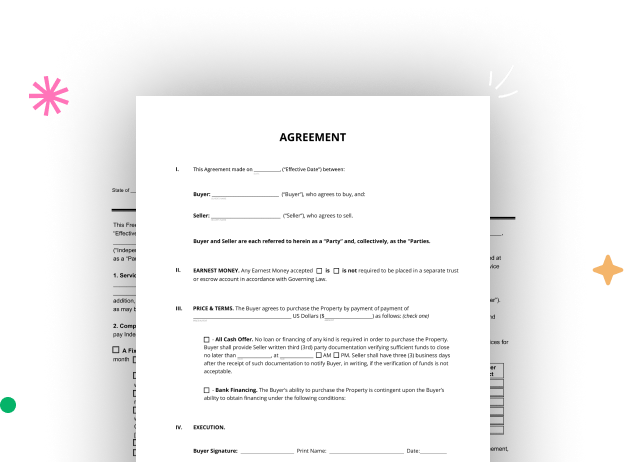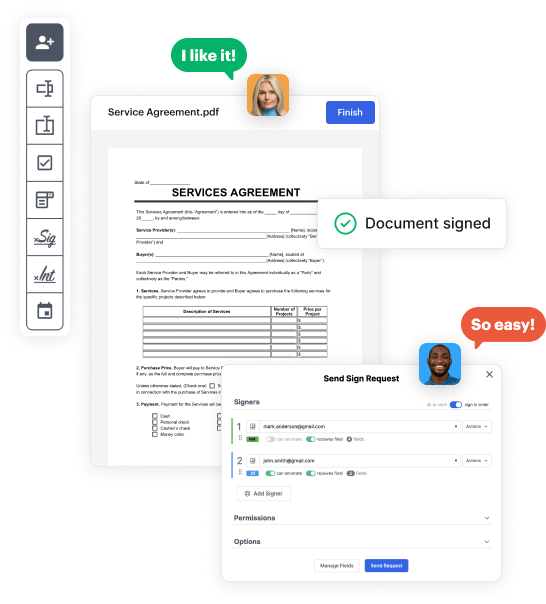

Start by signing up for a free DocHub account using any available sign-up method. If you already have one, simply log in.
Try out the entire suite of DocHub's pro features by registering for a free 30-day trial of the Pro plan and proceed to craft your District of Columbia Tenant Law.
In your dashboard, select the New Document button > scroll down and hit Create Blank Document. You’ll be redirected to the editor.
Use the Page Controls icon indicated by the arrow to switch between two page views and layouts for more flexibility.
Navigate through the top toolbar to add document fields. Add and configure text boxes, the signature block (if applicable), insert images, etc.
Organize the fillable areas you incorporated per your chosen layout. Modify the size, font, and alignment to ensure the form is easy to use and professional.
Save the finalized copy in DocHub or in platforms like Google Drive or Dropbox, or craft a new District of Columbia Tenant Law. Send out your form via email or get a public link to engage with more people.